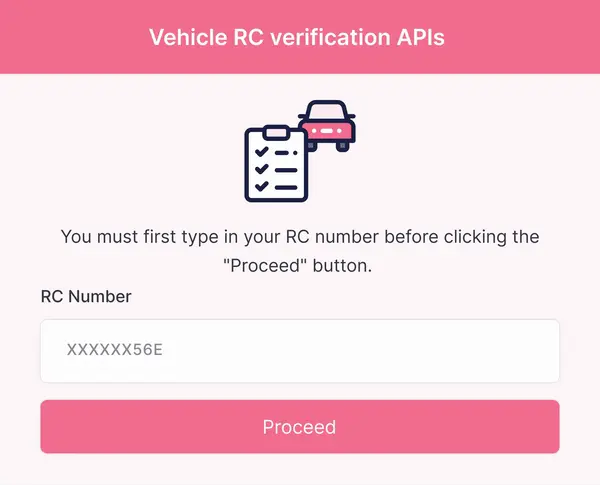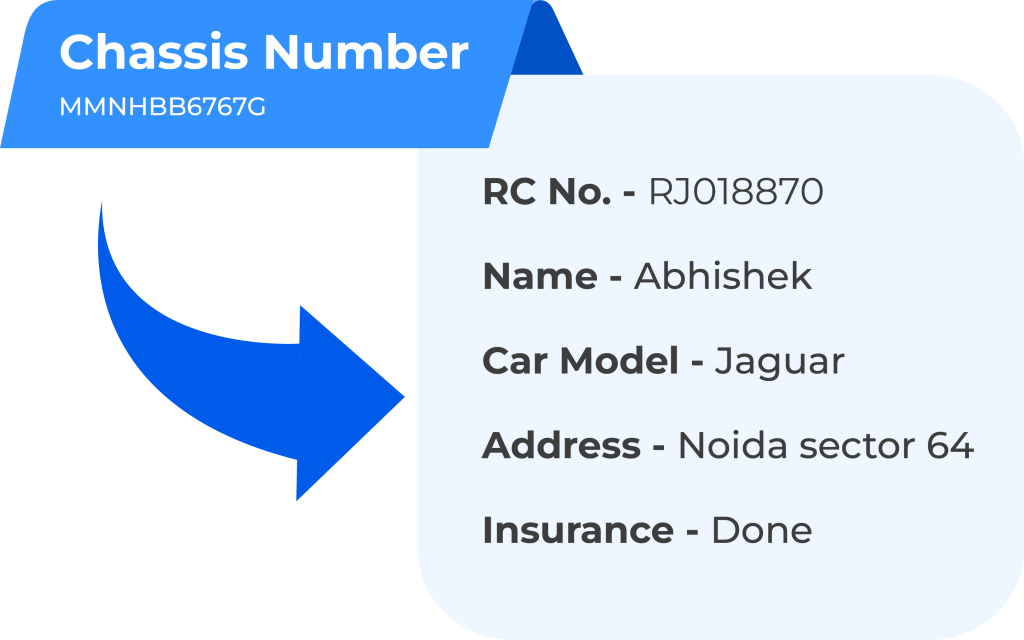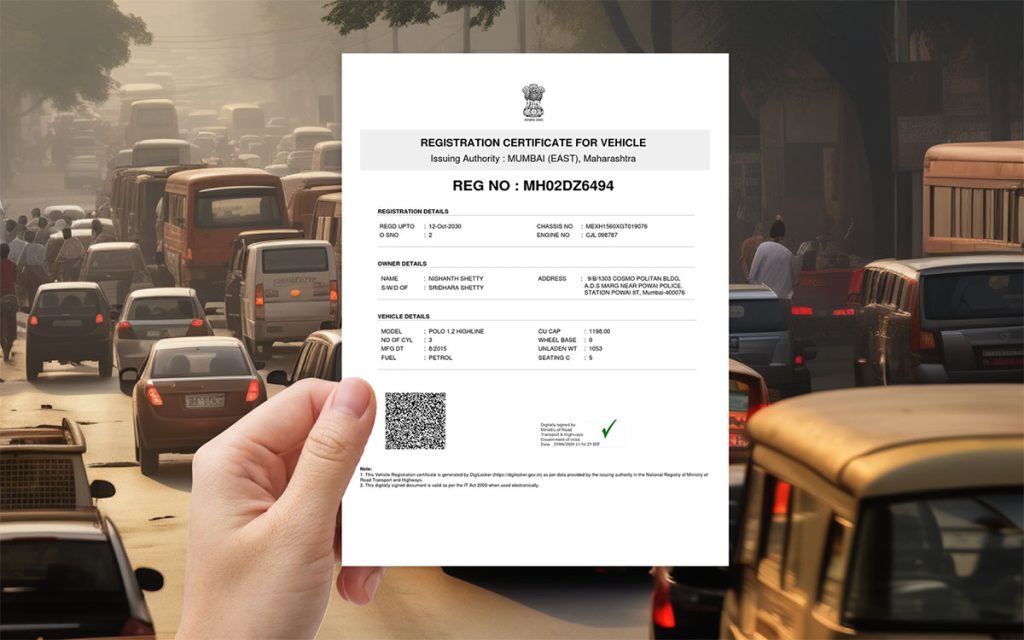The Role of Technology in Streamlining Vehicle RC Check API Processes
In the realm of vehicle ownership and operation, ensuring compliance with regulatory requirements is paramount. One crucial aspect of this compliance is the regular inspection and verification of vehicle registration certificates (RC). Traditionally, this process has been cumbersome and time-consuming, involving manual checks and paperwork. However, with advancements in technology, particularly the integration of Application Programming Interfaces (APIs), the landscape of RC checks is undergoing a significant transformation. In this article, we delve into the role of technology in streamlining vehicle RC check API processes and its implications for both authorities and vehicle owners.
Table of Contents
Understanding the Traditional Vehicle RC Check Process:
Before delving into the technological advancements, it’s crucial to grasp the conventional process of conducting RC checks. Typically, when a vehicle is subjected to inspection, authorities manually verify its registration certificate to ensure compliance with legal requirements. This process involves physically examining the RC document, checking for authenticity, and recording relevant details. However, this manual approach is inherently prone to errors, delays, and inefficiencies.

The Emergence of RC Check APIs:
Enter the era of technology-driven solutions, where APIs play a pivotal role in transforming traditional processes. Vehicle RC Verification APIs are software intermediaries that enable seamless communication between different systems to retrieve real-time information about vehicle registrations from relevant databases. These APIs leverage secure protocols to access centralized databases maintained by transportation authorities or regulatory bodies.
Key Advantages of RC Check APIs:
- Automation: Perhaps the most significant advantage RC Check APIs offers is automation. Integrating these APIs into inspection systems or applications replaces the manual verification process with automated queries to the database. This significantly reduces the time and effort required to conduct RC checks.
- Real-Time Updates: RC verification APIs provide access to real-time data from the central database. This ensures that inspectors or relevant authorities have access to the most up-to-date information regarding vehicle registrations, including any changes or updates made by owners.
- Accuracy and Reliability: Unlike manual checks that are susceptible to human error, RC Check APIs offer a higher level of accuracy and reliability. Automated data retrieval eliminates the possibility of misinterpretation or oversight, leading to more reliable inspection outcomes.
- Enhanced Efficiency: With the automation of RC checks, efficiency is significantly enhanced. Inspectors can process a larger volume of vehicles in a shorter amount of time, leading to smoother operations and reduced waiting times for vehicle owners.
- Cost Savings: Implementing RC verification APIs can result in cost savings for both authorities and vehicle owners. The reduction in manual labor and paperwork translates to lower operational costs, while the streamlined process minimizes the time and resources required for compliance.

Technological Innovations in RC Check APIs:
The evolution of RC Check APIs is fueled by ongoing technological innovations aimed at further enhancing their capabilities and usability. Some notable advancements include:
- Blockchain Integration: Integrating blockchain technology into RC verification APIs can enhance security and transparency. By leveraging blockchain’s immutable ledger, the authenticity of RC data can be guaranteed, minimizing the risk of tampering or fraud.
- Machine Learning Algorithms: Machine learning algorithms can be employed to analyze historical RC data and identify patterns or anomalies. This predictive capability can help authorities detect potential issues such as fraudulent registrations or discrepancies in-vehicle information.
- Mobile Accessibility: Making RC Check APIs accessible via mobile applications facilitates on-the-go verification for inspectors. Mobile integration enables inspectors to perform checks directly from their smartphones or tablets, increasing flexibility and convenience.
- Data Visualization Tools: Implementing data visualization tools enhances the usability of RC Check APIs by presenting information in a user-friendly manner. Graphical representations, charts, and dashboards can provide insights into registration trends, compliance rates, and other relevant metrics.
- Cross-Border Compatibility: With the increasing globalization of vehicle ownership and mobility, ensuring cross-border compatibility of RC Check APIs is essential. Harmonizing data formats and communication protocols enables seamless verification of registrations across different jurisdictions.
Challenges and Considerations:
While RC Check APIs offer numerous benefits, their implementation is not without challenges. Some key considerations include:
- Data Privacy and Security: Safeguarding sensitive vehicle registration data is paramount. Implementing robust encryption protocols and adhering to data privacy regulations are essential to protect against unauthorized access or data breaches.
- Interoperability: Ensuring interoperability between different systems and databases is crucial for the seamless functioning of RC Check APIs. Standardizing data formats and protocols facilitates integration across disparate platforms.
- User Training and Adoption: Proper training and education are essential to ensure the widespread adoption of RC Check APIs among inspectors, authorities, and other stakeholders. User-friendly interfaces and comprehensive training programs can mitigate resistance to technological change.
- Maintenance and Updates: Regular maintenance and updates are necessary to keep RC Check APIs functional and secure. Continuous monitoring of performance metrics and user feedback helps identify areas for improvement and optimization.

Future Outlook:
Looking ahead, the role of technology in streamlining vehicle RC check processes is poised to expand further. Advancements such as artificial intelligence, Internet of Things (IoT) integration, and enhanced connectivity hold the promise of even greater efficiency and effectiveness in ensuring regulatory compliance. Additionally, as smart cities and autonomous vehicles become more prevalent, the integration of RC Check APIs into broader transportation ecosystems will become increasingly important.
Conclusion:
In conclusion, technology, particularly in the form of RC Check APIs, is revolutionizing the process of verifying vehicle registrations. By automating and streamlining RC checks, these technological solutions offer numerous benefits, including increased efficiency, accuracy, and cost savings. However, addressing challenges such as data security, interoperability, and user adoption is essential to realize the full potential of RC Check APIs. As technology continues to evolve, the future of vehicle registration verification promises to be even more efficient, transparent, and seamlessly integrated into the broader transportation infrastructure.

